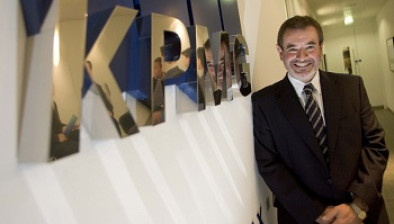KPMG: Scottish retail sales recovering at ‘worryingly low’ pace
Total retail sales in Scotland decreased by 8.3% over the four weeks from July 5 to August 1 compared with July 2019, when they had decreased by 0.1%, in what KPMG has described as ‘a recovery of sorts, but at a worryingly low pace’.

According to the latest Scottish Retail Sales Monitor by KPMG and the Scottish Retail Consortium, the 8.3% decline was above the 3m average decline of 18.2% and the 12m average decline of 8.9%. Adjusted for deflation, the decrease was 7.1%.
Scottish sales decreased by 7.7% on a like-for-like basis compared with July 2019, when they had decreased by 0.5%*. This is above the 3-month average decrease of 13.8% and the 12-month average decrease of 7.9%.
Total Food sales increased 3.5% versus July 2019, when they had increased by 2.4%*. This is below the 3-month average growth of 3.8% and above the 12-month average growth of 3.3%. The 3-month average was below the UK level of 6.1%, while the 12-month average remained above the UK’s levels of 3.2%.
The monitor also revealed that total Non-Food sales decreased by 18.1% in July compared to July 2019, when they had decreased by 2.3%. This was above the 3-month average decline of 36.3% and the 12-month average decline of 19.0%.
Adjusted for the estimated effect of Online sales, Total Non-Food sales decreased by 5.2% in July versus July 2019, when they had decreased by 1.0%*. This is above the 3-month average decline of 19.2% and the 12-month average decline of 12.5%. Those are lower than the UK’s 3m and 12m Total average declines of 4.3% and 6.1% respectively.
Paul Martin, partner, UK head of retail at KPMG, said: “The latest figures highlight the scale of the challenge ahead for Scotland’s retailers. With store sales down 8.3% year-on-year, we’re witnessing a recovery of sorts, but at a worryingly low pace. Once again, food sales have helped to mitigate some of the losses in the industry, with fashion retailers continuing to struggle as consumers focus on essential purchases.
“September is typically one of the strongest months of the year for Scottish High Streets, so there will be a great deal of nervousness as we approach this period with furlough schemes tailing off and local lockdowns and travel restrictions continuing to put people off returning to a degree of normality. The industry is facing an uphill battle for survival. The next few months could be a crucial make-or-break period for many.”
Ewan MacDonald Russell, head of policy & external affairs at the Scottish Retail Consortium, commented: “Scottish sales continue to underperform with a real terms fall of 7.1%. Although some high street stores were open throughout July, those in shopping centres, as well as hospitality businesses, were only permitted to open in the second half of the month as a result of the prolonged lockdown in Scotland. Those closures, along with difficult economic conditions appear to have impacted on both footfall and high street sales.
“Food sales were actually quite close to what would be expected in July, albeit food retailers were only competing with hospitality businesses in the latter two weeks. Summer party and barbeque food did well as Scots sought outdoor food whenever the mixed weather permitted.”
He continued: “Non-food sales remain heavily driven by home spending. Consumers continue to look for technology, kitchen appliances, and homeware products as they spend more time working and living at home. There was a positive uptick in larger items, perhaps a result of stores being open and consumers able to try out products. However, online non-food sales continue to be higher than previous years and it’s clear many shoppers are now settled into using digital channels.
“Whilst these figures are a significant improvement on the dire numbers from full lockdown, they are still lower than expected for this time of year. Furthermore, even with some pent up demand it’s likely the lost sales from Spring and Summer will not be recouped. For retailers taking very complex and costly measures to keep customers safe the next few months are likely to be very challenging, and regrettably we may see further businesses stumble under the unprecedented pressure they are facing.”










